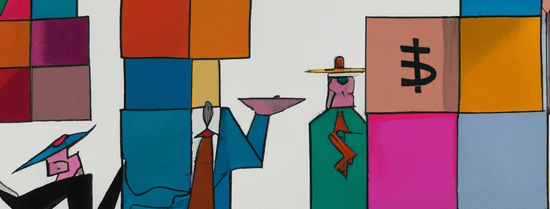Introduction
In this workshop participants will learn how to organize and clean quantitative data and how to control the quality of such data. These data management skills are highly relevant and useful for all researchers, in all disciplines and faculties, who do empirical quantitative research.
Data Carpentry can be seen as a 'follow-up course to our Open science and research transparency course'. As it offers a basic introduction to R, this course can also help as a preparation to our course Data Analysis with R.
Course information
ECTS: 1.5
Number of sessions: 2
Hours per session: 8
Key Facts & Figures
- Type
- Course
- Instruction language
- English
- Fee
- free
What will you achieve?
- After completion of this workshop, you will be able to apply good data organization practices in spreadsheets.
- You will be able to use OpenRefine to effectively clean and format data and automatically track any changes that you make.
- You will be able to manipulate values, objects, functions, and arguments with R.
- You will be able to organize and manipulate data within data frames in R, using the tidyr package
- You will be able to produce scatter plots, boxplots, and barplots from data in R using ggplot.
- And you will be able to create an R Markdown document containing R code, text, and plots.
Start dates
Edition 1 (offline)September 30 and October 1 (Tuesday) 2024 Edition 2 (offline)February 10 and 11 2025 | E
|
This workshop is open to researchers from TU Delft, Leiden University, Erasmus University Rotterdam and VU Amsterdam.
Please consult the course website for further information and registration.
Aims and working method
Data Carpentry develops and teaches workshops on the fundamental data skills needed to conduct research. Its target audience is researchers who do quantitative research and have little to no prior computational experience. It is domain-specific, building on learners' existing knowledge to enable them to quickly apply skills learned to their own research. Participants will be encouraged to help one another and to apply what they have learned to their own research problems. For more information on what we teach and why, please see our paper "Good Enough Practices for Scientific Computing".
Entry level
The course is aimed at doctoral students and other researchers from Erasmus University Rotterdam, Leiden University, and Delft University of Technology. You don't need to have any previous knowledge of the tools that will be presented at the course.
How to prepare
Requirements: Participants must have access to a computer with a Mac, Linux, or Windows operating system (not a tablet, Chromebook, etc.) that they have administrative privileges on. They should have a few specific software packages installed (listed on this webpage).
Accessibility: We are dedicated to providing a positive and accessible learning environment for all. Please notify the instructors in advance of the workshop if you require any accommodations or if there is anything we can do to make this workshop more accessible to you.
Pre-workshop survey: Please be sure to complete the pre-workshop survey before the workshop. You can find the survey link on the course website.
Sessions
You will first learn how to implement data management in spreadsheet programs, and how to use the OpenRefine tool to effectively clean and format data and automatically track any changes that you make.
Subsequently, the focus is on using R, RStudio, and RMarkdown for data wrangling and data visualization. You will learn how to work with data types and variables in R. Using a real life dataset, you will learn how to import data in R, to organize and manipulate the data, and create custom plots based on the dataset.
The instructors
The workshop will be taught by certified Carpentries instructors as well as a team of helpers (supporting learners one-on-one if they are stuck installing software, understanding a certain line of code, or any other parts of the learning process) from Leiden University, Delft University of Technology, Erasmus University Rotterdam, and VU Amsterdam.
Contact
- Enrolment-related questions: e.klapwijk@essb.eur.nl
- Course-related questions: e.klapwijk@essb.eur.nl
- Telephone: +31 (0)10 4082607
Facts & Figures
- Fee
- free
- Tax
- Not applicable
- Offered by
- Erasmus Graduate School of Social Sciences and the Humanities
- Course type
- Course
- Instruction language
- English
